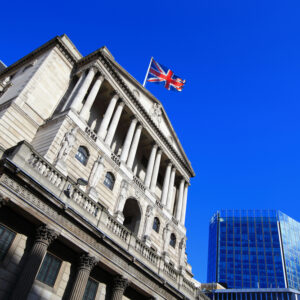

Gross domestic product (GDP) held steady in February as a rise in construction output was offset by declines in sectors hit by strikes involving teachers and health workers.
The latest estimate issued by the Office for National Statistics (ONS) said a rise in construction was offset by declines in sectors that had been hit by walkouts by workers including teachers and NHS staff.
The lack of growth follows a surprise increase of 0.4 per cent in real gross domestic product (GDP) in January. In the three months to February, GDP rose 0.1 per cent. (GDP measures a country’s economic growth based on the value of goods and services produced during a specific time period.)
The ONS said the largest contributions to the fall in GDP came from education and public administration, and defence. Industrial action took place in both of these sectors in February.
Despite the flat results, Chancellor of the Exchequer Jeremy Hunt, remained optimistic.
He said: “The economic outlook is looking brighter than expected – GDP grew in the three months to February and we are set to avoid recession thanks to the steps we have taken through a massive package of cost-of-living support for families and radical reforms to boost the jobs market and business investment.”
The ONS said monthly GDP is now estimated to be 0.3 per cent above its February 2020 pre-coronavirus level.
The construction sector grew by 2.4 per cent in February, after a fall of 1.7 per cent in January. There was a 0.4 per cent rise in output by consumer-facing services in February, and the largest contributor was retail trade.
‘The economy is still expected to shrink this year’
Victoria Scholar, head of investment at Interactive Investor, said: “Although the UK looks set to avoid a technical recession and last year’s extremely pessimistic forecasts have been wound back, the economy is still expected to shrink this year as pressures from persistent inflation with the cost-of-living crisis, falling real wages and a high exposure to gas prices take their toll. Plus the recent turmoil in the banking sector is likely to add to the UK’s economic woes.
“Despite this, the FTSE 100 has been extremely resilient, rallying over 3.5 per cent year-to-date partly thanks to its leaning towards defensive stocks like healthcare and utilities. The FTSE 250 which is more closely correlated with the UK economy however is down so far in 2023 and has shed over nine per cent year-on-year.”
The figures come as this week the UK was forecast to be one of the worst-performing advanced economies this year, according to a report from the International Monetary Fund (IMF).
It predicts the UK economy will shrink by 0.3 per cent in 2023 and grow by 1 per cent in 2024.
But the IMF has also said this week that it expected inflation, still in double digits, to fall back towards pre-pandemic levels.






